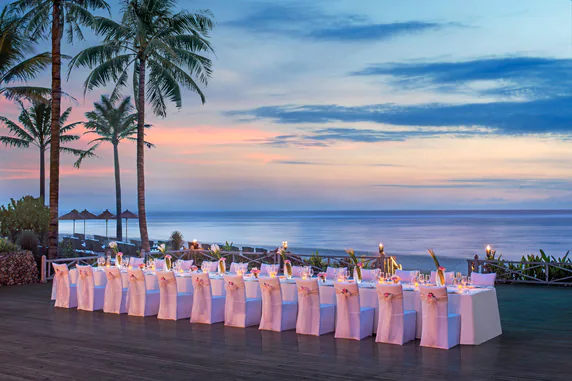
Mastering Conference & Exhibition Management: Understanding Key Differences and Emerging Trends for 2025
In today’s dynamic business landscape, conferences and exhibitions serve as vital platforms for associations, industry bodies, and corporate entities to connect, collaborate, and innovate. While they share many logistical elements, Conference & Exhibition Management involves distinct approaches, each with unique challenges and opportunities. This thought leadership article explores the differences between managing conferences and exhibitions, offers insights into key strategies for seamless event execution, and examines emerging trends set to shape the future in 2025, including the integration of AI. We also highlight unique European venues perfect for hosting impactful events, drawing on The DMC Collective’s expertise.
1. Understanding the Key Differences Between Conferences and Exhibitions
Conferences and exhibitions may often be hosted together, but they serve different purposes and have distinct management requirements. Understanding these differences is essential for event organisers aiming to deliver successful experiences.
Conferences: Focus on Knowledge Sharing and Networking
Conferences are structured events designed primarily for knowledge sharing, discussion, and networking. They typically involve presentations, panels, workshops, and keynote speeches, with a strong emphasis on content and learning. Conferences are ideal for professional development, launching new industry standards, or discussing key trends and innovations within a sector.
Key Features of Conference Management:
- Programme Development: The heart of a conference lies in its agenda. Curating relevant content, engaging speakers, and interactive sessions is critical. Attendees expect a robust line-up that delivers value and insights.
- Networking Opportunities: Conferences often feature structured networking sessions, such as roundtable discussions, Q&A panels, and breakout rooms, which encourage interaction among attendees.
- Event Accommodation Services: Delegates often travel to attend conferences, so providing seamless accommodation and transport arrangements is a crucial part of conference management.
- Focus on Attendee Experience: Organisers must ensure a smooth experience from registration to post-event follow-ups, creating a cohesive environment where learning and connections flourish.
Exhibitions: Spotlight on Products and Business Opportunities
Exhibitions are designed to showcase products, services, and innovations. They provide businesses with an opportunity to display their offerings to a targeted audience, generate leads, and foster new partnerships. Unlike conferences, exhibitions emphasise visual engagement and hands-on experiences.
Key Features of Exhibition Management:
- Booth Design and Layout: Exhibitors need strategic placement and appealing booth designs to attract visitors. Effective exhibition management ensures a balanced layout that promotes foot traffic and maximises exposure for all participants.
- Lead Generation Tools: Exhibitions are inherently business-driven, with a strong focus on connecting buyers with sellers. Using digital tools like QR code scanners and mobile apps, exhibitors can capture and track leads efficiently.
- Interactive Experiences: Exhibitions benefit from technology that facilitates product demonstrations, AR/VR experiences, and live showcases. These interactive elements draw visitors in and enhance engagement.
Marketing and Promotion: Promoting an exhibition requires strategies that focus on building anticipation and attracting foot traffic. Effective campaigns will highlight the variety of exhibitors, new product launches, and networking opportunities available.
2. Strategic Planning: Tailoring Approaches for Conferences and Exhibitions
Effective Conference & Exhibition Management starts with strategic planning that considers the unique needs of each format. While some elements overlap, the planning must reflect the specific objectives and audience expectations.
For Conferences:
- Defining Themes and Objectives: Begin by clarifying the core message of the conference. This could range from addressing industry challenges to exploring emerging trends. Establishing a clear theme helps in selecting relevant speakers and content.
- Programme Development: Create a structured agenda that combines educational sessions with interactive formats like workshops or panel discussions. Incorporate sufficient time for networking, and ensure the content aligns with the audience’s interests.
- Technology Integration: Leverage mobile apps to provide real-time updates, agendas, and networking features that enhance the attendee experience. AI-driven platforms can be used to match attendees based on interests, facilitating more effective networking.
For Exhibitions:
- Space Planning and Booth Allocation: Map out the exhibition floor with an eye for optimising traffic flow. Strategic booth placement can significantly impact an exhibitor’s success, so it’s essential to consider how visitors navigate the space.
- Logistical Coordination: Efficiently manage the setup, transportation, and breakdown of exhibits. Exhibitors often require specialised equipment and materials, making logistics a core element of planning.
- Visitor Engagement: Create interactive elements that encourage visitors to explore booths. Features like product demos, AR/VR displays, and live presentations can make the exhibition more engaging and memorable.

3. Unique European Venues for Conferences and Exhibitions from The DMC Collective
Choosing the right venue is crucial, whether you’re hosting a conference or an exhibition. Factors such as location, capacity, amenities, and accessibility are key considerations. Equally important is the ambiance—venues should reflect the event’s purpose and create a conducive environment for learning or business deals.
Venues for Conferences:
- Lake Tegernsee, Germany: An ideal destination for leadership retreats and team offsites, Lake Tegernsee offers state-of-the-art facilities at the Bachmair Weissach resort. Just 55 minutes from Munich airport, it’s perfect for conferences that blend learning with leisure.
- Lake Maggiore, Italy: This picturesque setting combines elegance with tranquillity, making it suitable for high-profile conferences. Its lakeside villas offer serene environments for deep discussions and collaborative learning.
Venues for Exhibitions:
- Bodo, Norway: Known for its modern event spaces and dramatic Arctic landscapes, Bodo is ideal for exhibitions that seek to stand out. The unique setting draws visitors, creating a buzz around the event.
- The English Countryside, UK: Consider stately homes in the Cotswolds or Lake District for exhibitions that seek to offer a more bespoke, intimate experience. These venues can host curated showcases that feel exclusive and luxurious.
4. Emerging Trends in Conference & Exhibition Management for 2025
As we approach 2025, several trends are redefining how conferences and exhibitions are planned and executed. Event organisers must adapt to these trends to stay competitive and deliver memorable experiences.
- AI-Powered Personalisation:Artificial Intelligence is transforming both conferences and exhibitions. For conferences, AI tools can personalise agendas, match attendees with similar interests, and automate content recommendations. In exhibitions, AI can enhance lead generation by predicting which visitors are most likely to engage based on their behaviour and interactions.
- Hybrid Events:Hybrid events, which blend physical and virtual elements, have become a mainstay in event management. For conferences, hybrid models allow organisers to reach a global audience while maintaining the benefits of in-person learning. For exhibitions, virtual booths can extend the reach of physical events, allowing exhibitors to engage with participants remotely.
- Sustainability and Green Practices:Sustainability is no longer optional. Both conferences and exhibitions are increasingly adopting eco-friendly practices, such as using digital tickets, sourcing local and sustainable food, and minimising waste. Venues with green certifications are particularly appealing, helping organisations meet their sustainability goals.
- Experience-Driven Incentive Programmes:There is a growing emphasis on corporate incentive travelprogrammes that offer unique and memorable experiences. Destinations like Bodo and Lake Tegernsee blend scenic beauty with modern facilities, catering to groups looking for more than just an event—they want an experience. These locations are ideal for fostering deep connections and rewarding teams and partners.

Conclusion: Mastering the Art of Conference & Exhibition Management
The key to success in Conference & Exhibition Management lies in understanding the unique requirements of each format. Conferences focus on knowledge-sharing and networking, demanding structured agendas and seamless logistics. Exhibitions, on the other hand, require strategic booth placement, interactive engagement, and strong marketing efforts to drive traffic and business opportunities.
As we move towards 2025, the integration of AI, hybrid event models, and sustainable practices will shape the future of this industry. By embracing these trends, event organisers can create seamless, engaging, and impactful experiences.
Ready to plan your next conference or exhibition? Contact The DMC Collective today to discover how we can help bring your vision to life. From sourcing unique venues to coordinating seamless logistics, our multilingual team is dedicated to delivering exceptional event experiences. Reach out at info@thedmccollective.com to learn more or book a virtual consultation.
Love this article? Share it now!

Related Articles

Nirup Island: Indonesia’s Exclusive Destination for Luxury Corporate Events
Nirup Island, nestled within Indonesia’s serene Riau Archipelago, stands out as a sophisticated choice for intimate luxury events, including board meetings, incentives, and exclusive partner seminars tailored for multinational audiences.

Why is Bali a Leading Destination for Corporate Event Spaces, and What Has Made Its Resorts Renowned Worldwide?
Discover why Bali is a top choice for corporate events, with world-class resorts and stunning venues that attract businesses from around the globe.

Corporate Incentive Travel Services in Bali: Why Bali Remains a Top Choice for Incentive Travel Planners
This article explores why Bali remains a top choice for incentive travel planners and highlights some of Indonesia’s hidden gems that deserve a spot on the radar of forward-thinking planners.
